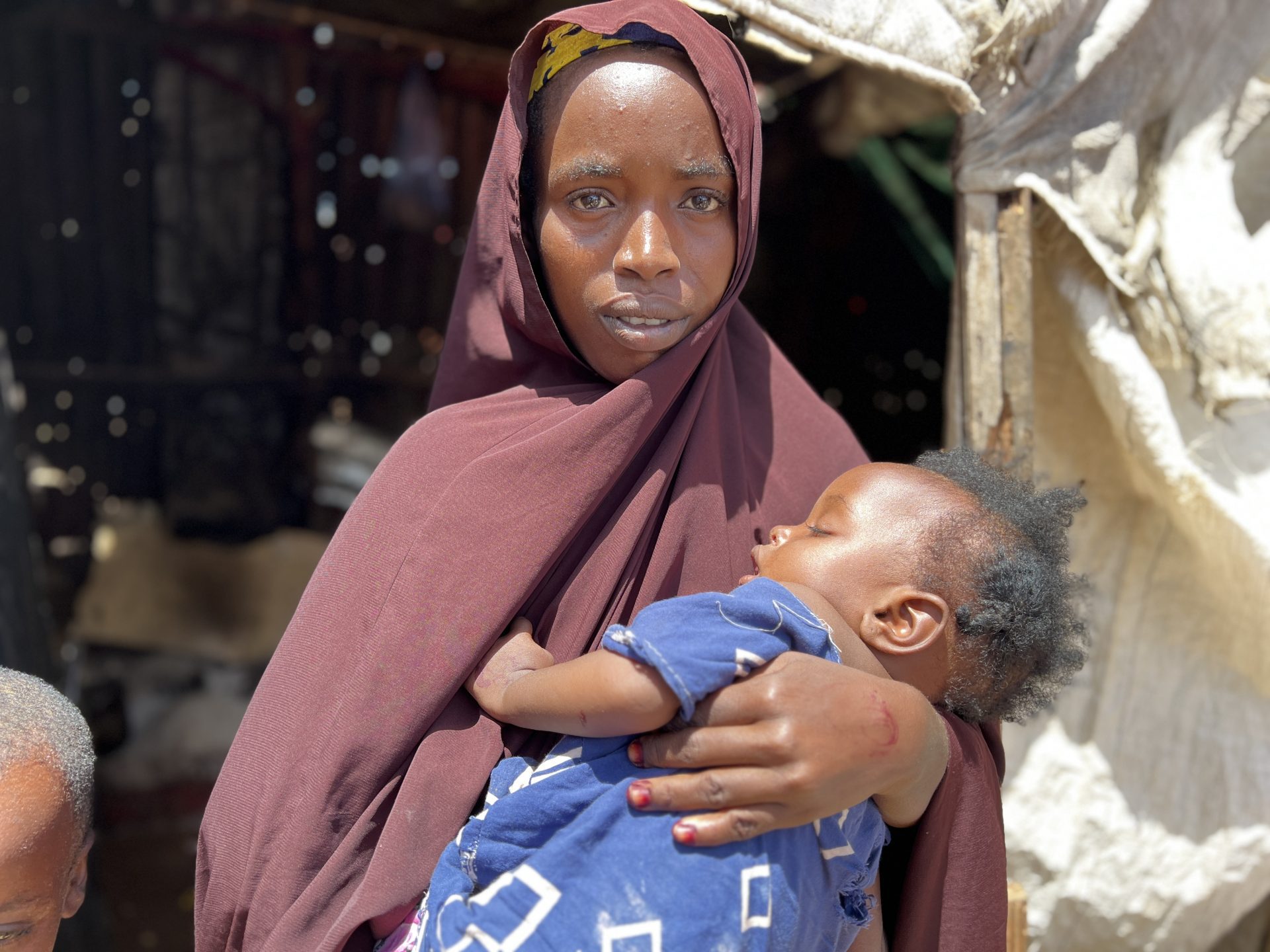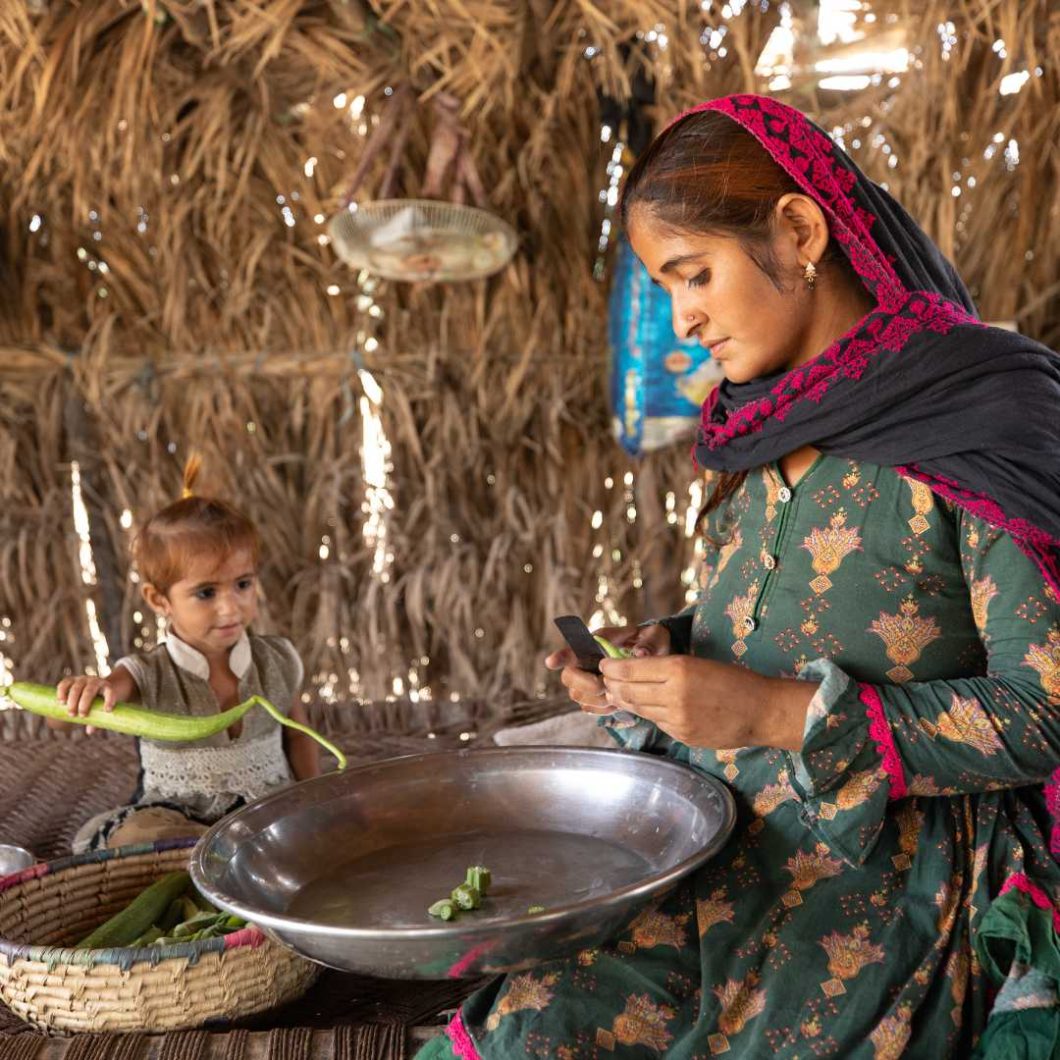What would you do when your livestock are dead? With your main source of food and income gone, you can no longer feed your family. You have no choice but to leave everything behind.
This is the reality for many families in drought-hit Somalia, where 8.3 million people are struggling to survive – making it one of the hungriest countries in the world. In camps for internally displaced people (IDP camps), families face difficult choices in their daily struggle to survive the realities of the climate crisis and the country’s ongoing conflict.
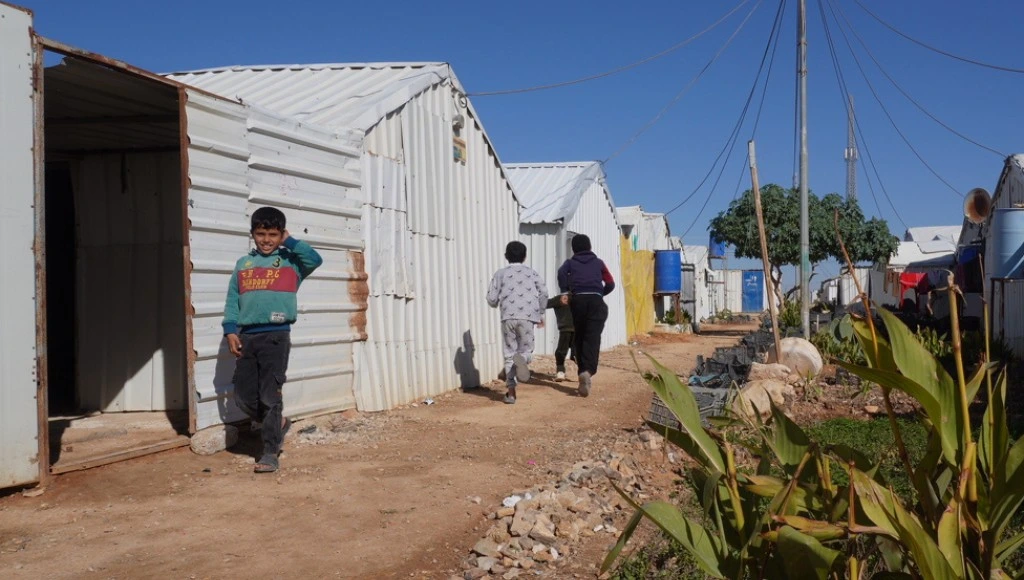
Faadumo lives with her family in an IDP camp on the outskirts of Mogadishu, Somalia’s capital. With ten children to care for, they’re desperately trying to find enough nutritious food. But even though her husband has returned to their farmland to plant crops, their future remains uncertain. The risk of returning together as a family is too great due to the unpredictability of the harvest and the lack of available food.
“Where can we go back to?” asks Faadumo. The farm isn’t ready, and we don’t have food available there. We don’t want to put our children at risk.”
“It’s better to stay here, where we get help from our neighbours and humanitarian agencies like Action Against Hunger.”
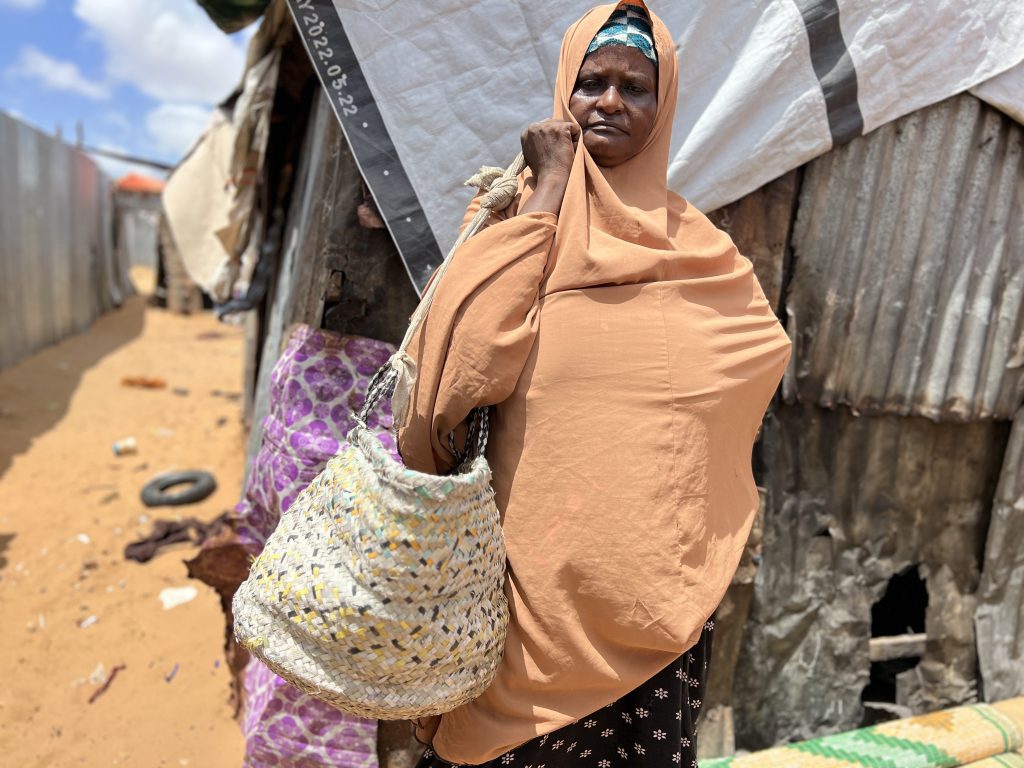
As the main breadwinner, Faadumo finds occasional work at the local market. But her income doesn’t meet the families’ basic needs. And finding employment is becoming even harder.
But Action Against Hunger are there to support Faadumo and her family. When her children became ill, she rushed them to the local health centre run by our team. They provided them with essential medicine and nutrition services, helping them to regain their strength.
Not far from Faadumo’s home, Ifrah’s family also experienced the devastating loss of their herds due to the drought. Left without a source of income or food, they were forced to relocate to an IDP camp in Mogadishu.
Ifrah’s husband works as a labourer in the city, but the work is unreliable and inconsistent. They depend on support from the local health centre, supported by Action Against Hunger, where their youngest daughter receives treatment for malnutrition. Their struggle to put food on the table continues, leaving them uncertain about where their next meal will come from.
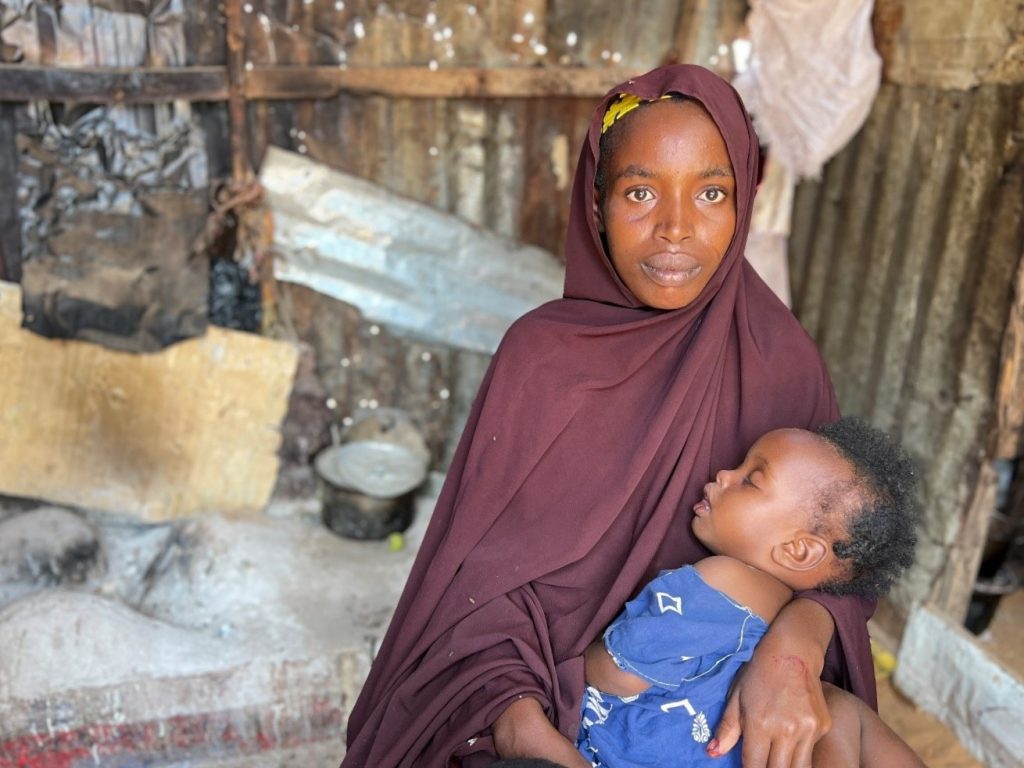
How is Action Against Hunger helping?
But there is hope. Despite the challenges of being displaced by conflict and drought, Safiya tends to her small kitchen garden in the IDP camp. With the knowledge gained from a nutrition programme run by Action Against Hunger, she now grows vegetables and can provide nutritious meals for her children. Her garden has become a source of nourishment and a symbol of hope for her family.
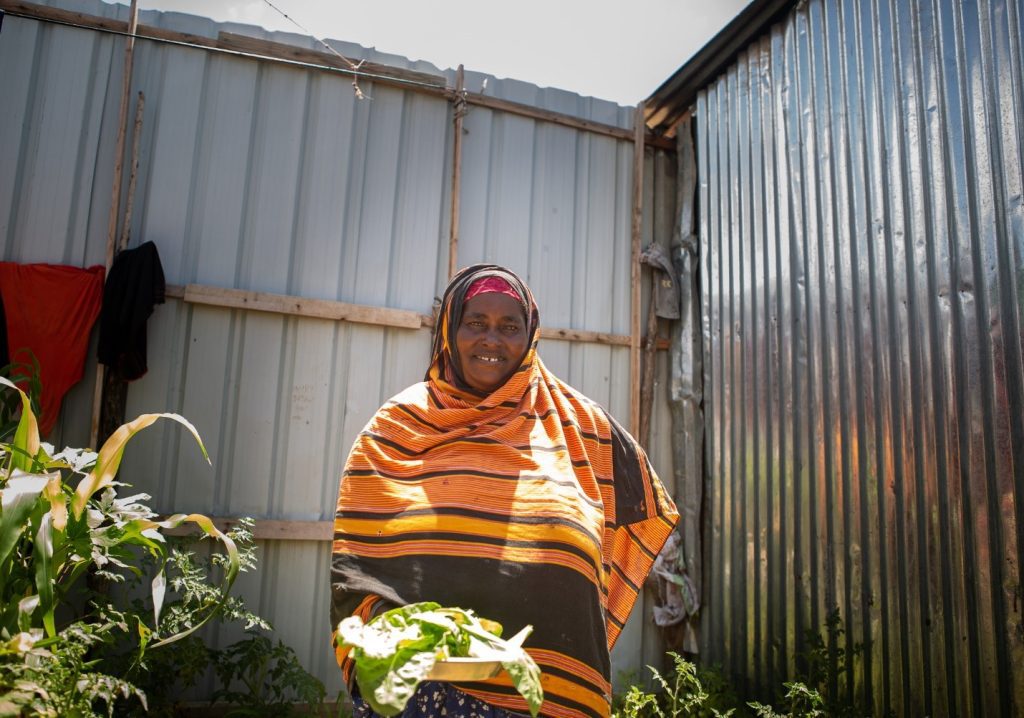
Through projects like these, we’re making a huge difference to the lives of families in Somalia. In the face of conflict and the climate crisis, our work stands as a testament to the strength of communities in Somalia.
With 1.8 million malnourished children and nearly half a million at risk of severe malnutrition, the time to act is now. Our teams in Somalia are providing vital support to families, including access to nutritious food, healthcare, and livelihoods programmes.
And with your support, together we can ensure more mothers like Faadumo, Ifrah and Safia get the help they need to create a healthier future.

